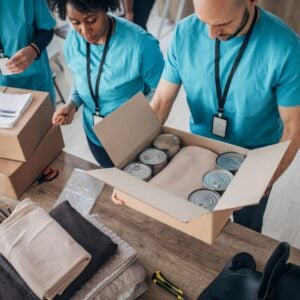The World Trade Organization (WTO), in collaboration with the Geneva Trade Platform and CropLife International, held the finals of its first global policy hackathon on trade and food security on 16 September. The event gathered 58 student teams from over 30 countries, tasking them with designing innovative solutions on how trade rules could support the fight against hunger. Over two days, participants presented a wide range of creative ideas, including digital food traceability systems, food safety knowledge hubs, financing for infrastructure, biofuel strategies, and new agricultural coalitions. The final round featured three shortlisted teams presenting their proposals to an expert jury of five WTO ambassadors from Chile, Djibouti, the Philippines, South Africa, and Switzerland, with CropLife International sponsoring the prizes. Director-General Ngozi Okonjo-Iweala opened the event by emphasizing that trade and food security are inseparable and highlighting the hackathon as a reflection of young people’s ambitions for a responsive and innovative WTO.
The three finalist teams represented a diverse global mix of students. The team “Global Grains,” composed of students from the European University Institute in Italy and the Graduate Institute in Geneva, proposed a “Harvest-to-Market Facilitation Pathway” to reduce post-harvest losses in Africa through improved storage and trade facilitation. “Spice Pacific,” with students from the S. Rajaratnam School of International Studies and Nanyang Technological University in Singapore, suggested converting food lost in trade and supply chains into sustainable biofuel production. The third team, “Agro-Strategos,” from Nanjing Agricultural University in China, focused on strengthening WTO rules to ensure the predictable flow of grain during crises, particularly to support vulnerable importing countries.
The jury awarded first place to Global Grains, second place to Spice Pacific, and third place to Agro-Strategos. In her closing remarks, Director-General Okonjo-Iweala congratulated all participants for their innovative and wide-ranging proposals. She underlined that the hackathon highlighted both the urgency of tackling food insecurity and the need for an adaptive and effective multilateral trading system to meet global challenges.







